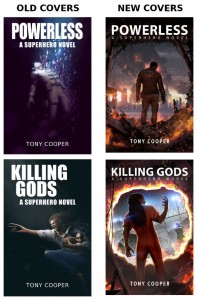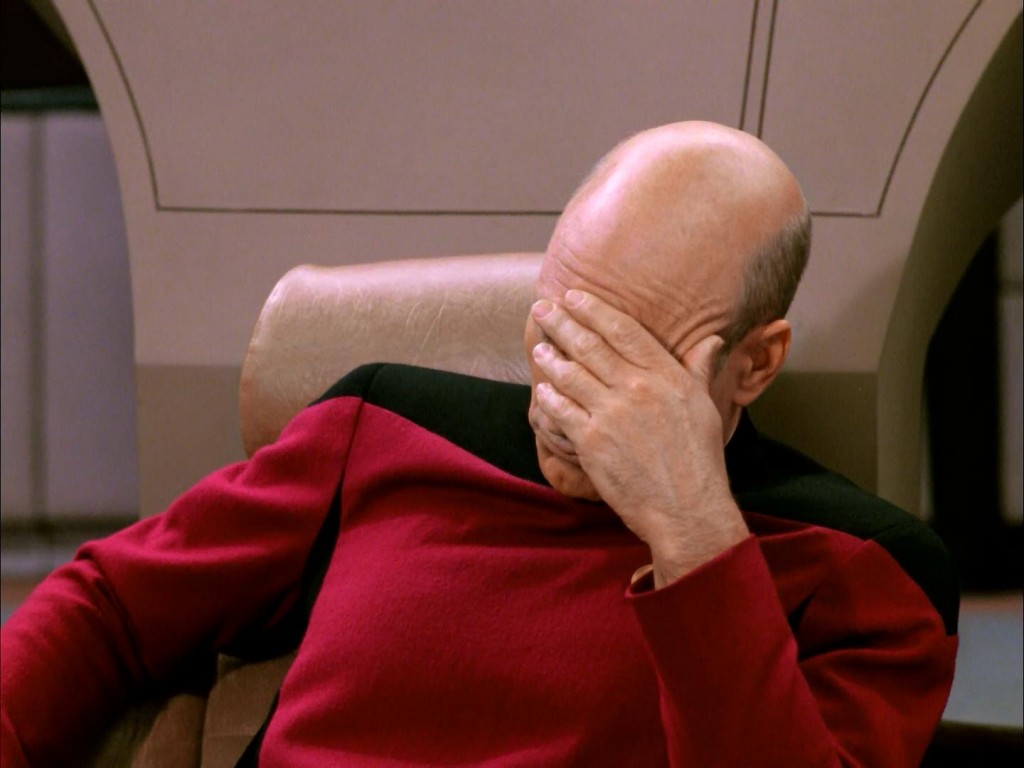Oh the mistakes I’ve made – self-pub advice
Hello all,
I thought it might be interesting and useful, especially for those either considering or just starting out in self publishing, to list here a few of my early mistakes. Some were minor, some were major (in hindsight) and some I am still making now, but at least I am aware and intent on fixing them. So, here are my five biggest self-publishing mistakes (so far):
1. I did not get POWERLESS edited
This is the first outlay you HAVE to make.
Being a self-published author who was writing their first book in their spare time while the day job payed the mortgage and bills, I didn’t have the spare cash to splurge £500-£600 on a full editing pass of my 125k word debut novel. I knew the statistics about how badly first novels sold and I was also fairly uncertain of my writing ability and how good the story was as well, so the last thing I wanted to do was get into debt on something that only went and sold single figures a month.
So, I did the editing myself, and subsequently sold single figures a month. The two weren’t directly linked of course, but I did feel justified in not deciding to go “all-out” for what was the equivalent of me dipping my toe in the ocean.
I was happy enough with my trickle of sales until I started getting a trickle of reviews. They were mostly positive, which was reassuring, but almost all of them mentioned the poor editing. Even with my self-awareness and knowledge of how bad an author’s own editing can be, I still did badly. Even with my fastidiousness and attention to detail, I still did badly. I had two continuity errors (one trivial, one bigger) and dozens upon dozens of typos and grammatical errors that made my head spin when they were eventually pointed out to me. They were all of the “How could I have NOT spotted that? I’m so dumb!” kind, but the thing is I wasn’t dumb [citation needed], I just had familiarity blindness. I was too close to what I’d written and read many times over, to have been able to spot them.
So I found myself an editor, a friend of my wife who studied English Literature at University (see, you can get a job with Eng Lit. :D) and she did a fantastic pass of my book, correcting all the errors and also making some great suggestions on improving pacing and dialogue.
2. I had unsuitable covers
 This is the second outlay you HAVE to make. Either splash out on a custom cover if you want something specific, or pay a lot less for a pre-made cover that is a close enough match for the content of your book (there are loads of these sites cropping up now for self-published authors – some will even format for the print edition too, so shop around).
This is the second outlay you HAVE to make. Either splash out on a custom cover if you want something specific, or pay a lot less for a pre-made cover that is a close enough match for the content of your book (there are loads of these sites cropping up now for self-published authors – some will even format for the print edition too, so shop around).
Now I know there will be some of you cringing at the thought that covers are so important, “Surely it’s all about the words inside?” I hear you cry. The reality is, if you’re an unknown author, nobody knows how good your words are until you can get them to read your book to begin with. And the first thing to grab a reader’s attention (even for free books!) is the cover. Only when you are the next Stephen King or J. K. Rowling can you depend on selling books by your name, and, by association, your known writing ability. This article contains pretty much everything you have to know about book covers and how important they are for sales.
Now when I released POWERLESS in 2013 I felt I wanted to do something different. I had done my research and saw that all the superhero book covers (and a lot of thrillers) had the standard pose of the silhouette of a man standing against a dramatic backdrop. A similar trend is seen in movie posters with the same general designs used again and again. Naturally I saw this as cynical and boring and wanted to buck the trend, so I went for an arty, more abstract cover based on the Renaissance chiaroscuro painting style. I followed the same style for the sequel KILLING GODS in 2014 and was personally very happy with them.
It wasn’t until mid 2015 I began to think that these covers might be hindering sales by a) Not giving the reader much of an idea what the book contained and by b) Looking so different to titles in the same genre that readers bypassed them completely. So, I went back to my cover artist with a new brief, had the covers remade and updated the formatting of the books at the same time.
Now, being a scientifically oriented chap, I thought I would do a bit of an experiment. I was releasing HIGGS & SOAP: GALAXY DELIVERY in August this year and decided to do a quiet release of the new superhero book editions at the same time. I did no promotion other than a few tweets and a blog post and just left them to see what happened. The results are: for POWERLESS, the old covers were selling ~10 copies per month steadily. The new covers have been increasing sales month-on-month: August – 19, September – 38, October – 62.
So my advice is, do your research on book covers in your chosen genre and DON’T do what I did and try to be clever about it – get a cover in a similar style and make sure it’s a good one!
3. I had no advertising strategy
To be honest, it would be a lie to say I have one even now, but my first novel I could only have had a bigger impact if I had flung it out of a train window.
Again, as with the book cover, some people will be thinking: “Ugh, advertising, promotion – dirty words!”, but the fact is if you really want to try to make a living out of this, then you need to learn to wear more hats than just “writer”. I’m lucky in a way – I have the ability to switch hats quite quickly, going from writing an emotional section of my book one minute, to doing a how-to blog post the next, to planning an advertising schedule the next. I know some people can’t do this, and I know there are companies out there now aimed at self-published authors who will do this for you, but it still pays to learn some basics.
When I released my first book, I think I did some tweets (to my dozen followers at the time), some blog posts (into the void) and told some friends at work (to “Well done mate, but I don’t read myself.”). So I spent time researching where I could advertise and how to advertise. I tested the waters with some Google adwords tied to a price drop: it had some initial impact, but the more I’ve tried it since with other books, the results have increasingly disappointed. It was then I learned to target advertising more – so I discovered SF and superhero forums, found ones that allowed author self-promotion (not all do – be careful, some will ban you if you do promo in the wrong place, rightly counting it as spam), discovered Reddit and the various writing/SF/ebook subreddits that allowed self-promotion or were specifically for sales and giveaways, and so on.
Now I have a spreadsheet of forums, Facebook groups, subreddits and retweet Twitter accounts that are relevant to my types of books. I have also worked out the best way for me to advertise my books without coming across like a robot – this will vary with your chosen genre and your own personality, but aim to be courteous and human in everything you do. Nobody likes a spammer.
4. I had no sales patter or presence
This is tied in with advertising strategy above, but when I started out I had no idea what to say to sell my books or sell myself as an author. I also only had a dozen Twitter followers and no Facebook page, so getting anybody to notice me was like trying to play Where’s Wally in Shanghai, where everyone has dressed as Wally for the day. And has a thousand times more friends.
It does help to be in a niche (and writing superhero fiction I am a niche within a niche) as there are dedicated websites and forums for your type of writing, not to mention conventions to attend. If you are a general contemporary fiction writer, then you have a far, far tougher climb ahead of you than someone writing crime thrillers or space opera science fiction. I worked on my presence by following people in the same field that interested me, following SF book and website accounts and by tweeting more interesting facts about myself and how I wrote etc. I also created a Facebook page for my writer alias, which has surprisingly done better than I expected in terms of views and outgoing link clicks. I created a Wattpad account and put the whole of my first book on there (although it’s the pre-edit version) and some short stories – had little traction with that to be honest, but it’s no-maintenance so I’ll keep it going for now. I haven’t bothered with Instagram or Pinterest (which are more visual anyway) as I wanted to keep a narrow but dedicated focus.
As for sales patter, I slowly worked to create one by going to conventions, practicing my 30 second sales pitch over and over. This lead to me altering the blurb on the latest editions of both my books with what I had learned.
slowly worked to create one by going to conventions, practicing my 30 second sales pitch over and over. This lead to me altering the blurb on the latest editions of both my books with what I had learned.
I also finally bit the bullet and did a panel at this year’s BristolCon. My first panel and I didn’t screw it up! I doubt that single appearance made any sort of ripple in the pond, but I will be doing more at other conventions, and that familiarity you build with the con audience, even if it’s just a “oh yeah, he’s that superhero book writer” is invaluable. In 2013 22% of Amazon book sales were from recommendations. That can only have increased now.
As someone who is a natural introvert and actively avoids conversations with strangers (like a lot of writers) this has been a big learning curve. However I am now more confident talking about myself and my books and have learned how to not sound like a used car salesperson while doing so.
5. There was no landing page on my website
This is one I only identified recently and still need to rectify.
When someone visits hungryblackbird.com right now, they are redirected to this blog. Which is great if you are coming to read my blog, but if you have just followed a link to my webpage to find out more about me, you suddenly get a faceful of my latest convention exploits, or updates on my new comic book. There is a sidebar with links to my books and a specific ‘Books’ page with more detail, but I still feel it would be better to have a single screen landing page with a small bio, details of my books (with purchase links), social media links and that also happens to link to the blog.
Why do you need a landing page? Well, you’ll have your Amazon author page, your Goodreads author page, your Facebook author page, but nothing beats your own website and blog. This is the central nexus of everything “you” online. The resource hub you direct anyone towards either personally, or from the “your website” link on all the other author pages mentioned above. This is also where you send any press to, or any bloggers you get to know. So, as I have recently realised, sending people straight to a blog page of random news isn’t the best welcome to give people.
Anyhow, these are the biggest mistakes I’ve made so far (not including going to that convention that, literally, no visitors came to) and I’m sure I’ll make more along the way, but I hope that some of this proves useful. Don’t hesitate to comment below or email me tonycooperauthor at Gmail.
Tony.
